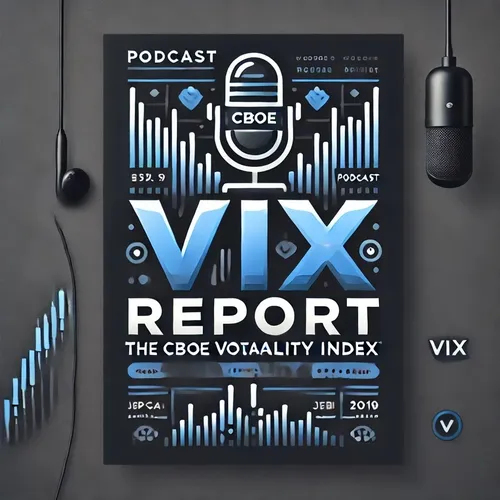"Calm Market Signals: VIX Dips to 18.09, Signaling Investor Confidence"
- Author
- QP-1
- Published
- Thu 22 May 2025
- Episode Link
- https://www.spreaker.com/episode/calm-market-signals-vix-dips-to-18-09-signaling-investor-confidence--66198303
The Cboe Volatility Index (VIX), a key measure of market expectations for near-term volatility conveyed by S&P 500 stock index option prices, closed at 18.09 on May 20, 2025. This represents a slight decrease of approximately 0.27% from its previous closing value of 18.14 on May 19, 2025. Such a decrease in the VIX can be interpreted as a sign that investors are becoming less apprehensive about volatility in the market, potentially reflecting growing confidence in market conditions.
The VIX is often referred to as the "fear index," as it encapsulates the consensus view of investors on the level of risk and volatility anticipated within the upcoming 30-day period. A lower VIX suggests that investors expect less volatility and indicates a sense of stability in the market. Conversely, a higher VIX reflects greater uncertainty and fear about future volatility.
One of the primary drivers of the decline in the VIX over recent sessions could be market stability fostered by a combination of stable economic indicators and positive corporate performance. For instance, if companies report strong earnings and growth, investors may feel assured about the resilience of the economy, leading to a decrease in expected market swings.
Additionally, a slew of positive economic indicators could be supporting this trend. Low unemployment rates, steady inflation figures, and robust GDP growth contribute to an environment where investors perceive fewer disruptions on the horizon. When the fundamentals of the economy appear secure, the prospect of volatility recedes, as reflected in the VIX.
However, it is important to note that global and geopolitical events can have a significant impact on the VIX. Although stability in domestic economic indicators can lead to lower volatility expectations, international tensions, trade issues, or other geopolitical uncertainties can quickly alter market sentiment. Such events can elevate risk perceptions, driving the VIX higher if investors foresee potential disruptions in the global economic landscape.
Seasonal trends may also influence the VIX. Although it does not follow strict seasonal patterns, the index might experience fluctuations during periods of heightened market activity, such as earnings announcements or central bank policy meetings. These events can introduce temporary spikes in volatility as investors react abruptly to new information.
In summary, the recent decline in the VIX to 18.09 on May 20, 2025, suggests a prevailing sense of calm and stability among investors, reflecting positive economic conditions and solid corporate performance. However, the dynamic nature of global events provides an ever-present potential for
